Library of the Week: 5th September: We have such an interesting post written by LSE Library this week as we find out more about their amazing collections. Thank you to the team at LSE Library for taking part!
Introduction to LSE Library and its collections
LSE Library, founded in 1896 as the British Library of Political and Economic Science, is the major international library of the social sciences. We are recognised by the Higher Education Funding Council as one of only five National Research Libraries in England, and our collections have been given Designated status by the Arts Council England for being of outstanding national and international importance.
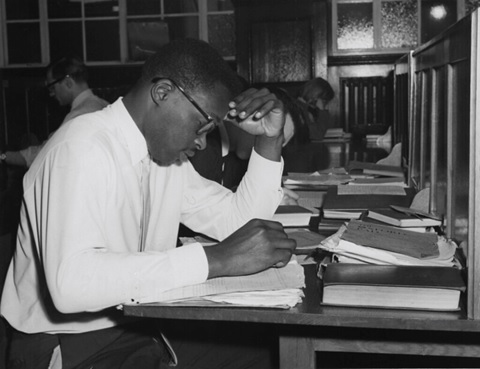
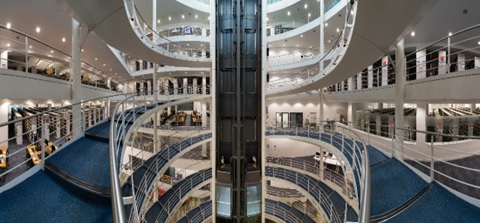
LSE Library has had a rich and detailed history over the last century and more. Our long-serving previous Collection Development Manager, Graham Camfield, documented the history of LSE Library and its collections, and has outlined how our collections have been shaped by both by individuals and national and international events.
Our collections developed at great pace in our early years thanks to the connections of our co-founders, Sidney and Beatrice Webb, who were able to ensure a steady supply of primary materials from individual and institutional donors. Over the decades, our collections became more diverse and international in scope through strategic collection development efforts. For example, our collections focussed on Britain and its Empire and continental Europe in the pre-Second World War era, and then rapidly expanded in outlook afterwards to include Eastern Europe and the Soviet Union, as well as Latin America. We also became depository libraries for the United States (1903), United Nations (1946) and the then European Communities (later European Union, 1964).
The culmination of more than a century’s activity is that our collections now cover the social sciences in the widest sense, with a particular strength in economics, sociology, political science and social, economic and international history. We have rich international collections of government publications and a wealth of statistical materials, as well as important collections of manuscripts, archives and rare books. We are especially proud that our extensive primary materials support original research undertaken at the LSE.
Below, we outline some of the strengths of our special collections and archives, as well as our work to digitise and provide wider access to its collections.
Special collections and archives
Our special collections consist of archives, pamphlets, periodicals, ephemera, and other primary sources relating to British political, economic, and social history. There is a particular focus on the work of national pressure groups, campaigners, reformers and think tanks, and their efforts to influence public debate and policy. A wide range of people, events, ideas, and movements are covered, with the following being special strengths:
- Women’s equality, citizenship, and rights, from the beginning of the organised women’s suffrage movement in the 1860s onwards. This strength is based on The Women’s Library collection which transferred to LSE in 2013.
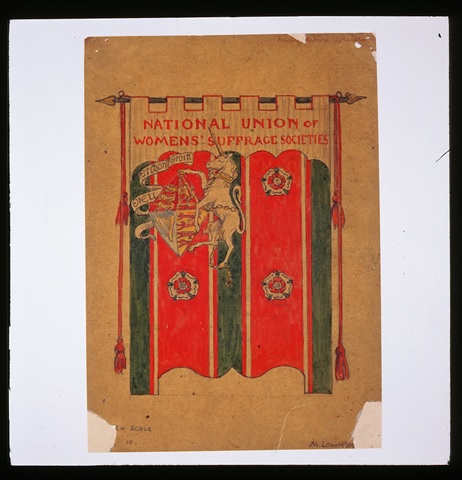
-
- LGBT+ equality and rights, from the foundation of the Homosexual Law Reform Society in 1958 onwards. This strength is based on the Hall-Carpenter Archives, which began as a community archive in 1980, and transferred to LSE in 1988.
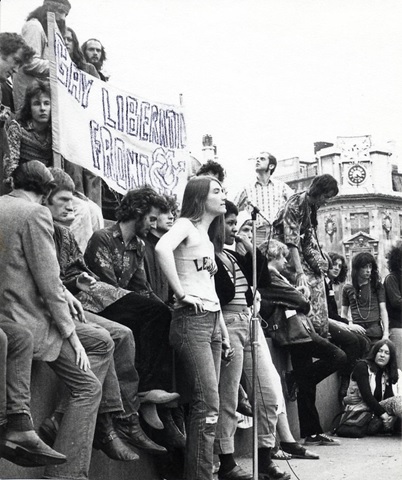
- Peace and internationalism, including the work of the League of Nations Union, the Campaign for Nuclear Disarmament, the Campaign Against the Arms Trade.
- Britain’s relationship with the European Union, covering the development in the 1930s of ideas about a federal Europe, and campaigns for and against Britain’s involvement from the 1950s onwards.
- Progressive politics in the UK, including the work of C20th left-wing politicians and writers, and the activities of the Independent Labour Party and the Fabian Society.
- Poverty and welfare, including Charles Booth’s inquiry into life and labour in London, the welfare reforms of the early-mid C20th, the Beveridge report, the ‘rediscovery of poverty’ in the 1960s, and the work of the Child Poverty Action Group.
- The history of social science in Britain, in particular the history and development of LSE, and the contribution of its members to public debate and government policy.
Digital collections
LSE Library has had a program of digitisation since 2008 and is actively managing its collections onto the web to make them freely and openly available for all. The main source for our digital collections is the LSE Digital Library. The Digital Library contains a wide variety of digitised collections and is increasing its range of born-digital collections as well. These collections reflect the variety and strengths of LSE Library’s collections as summarised in the sections above. Some highlights include:
- The recently digitised diaries of former Chancellor of the Exchequer Hugh Dalton.
- A curated collection of material focussing on Peace and Internationalism.
- The Economic History Collection, a large set of materials focussing on post-war British economic history and demography.
- Our collection of digitised Election Ephemera.
As well as the Digital Library, the Library has developed a site dedicated to the life and work of social scientist, businessman and philanthropist Charles Booth, called Charles Booth’s London. The site makes available his famous poverty maps presented as a single map overlayed on a map of modern London. In addition the site makes available a (nearly) full archive of the Notebooks which contain the “raw materials” for his research project, as well as lots of contextual information about Booth and his ground-breaking research.
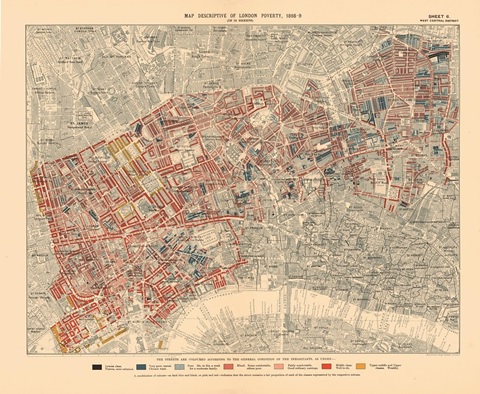
The Library also makes use of other services to get our collections out there. We have a large Flickr pool of photos relating to all aspects of LSE, as well as a smaller but well-used set of collections on Unsplash. We also have begun uploading collections to JSTOR’s Open Community Collections platform, as a way of getting collections into researchers’ eyelines. Finally, we make use of Google Arts & Culture to present exhibitions based around our collections.
In future, the recent development of an on-site Digitisation Suite is allowing us to ramp up our collection digitisation activities, as well as developing new services such as Digitisation on Demand. We will also explore new ways of making our collections discoverable, for example by describing them using open linked data in stores such as Wikidata.
For more information about LSE Library, visit our website.
- Anna Towlson (Archives and Special Collections Manager)
- Neil Stewart (Digital Library Manager)
- Kevin Wilson (Academic Liaison and Collection Development Manager)
All images copyright of LSE Library reproduced with kind permission of the copyright holder.
You can explore the library’s collections on Discover and find further contact details on their Discover information page.

